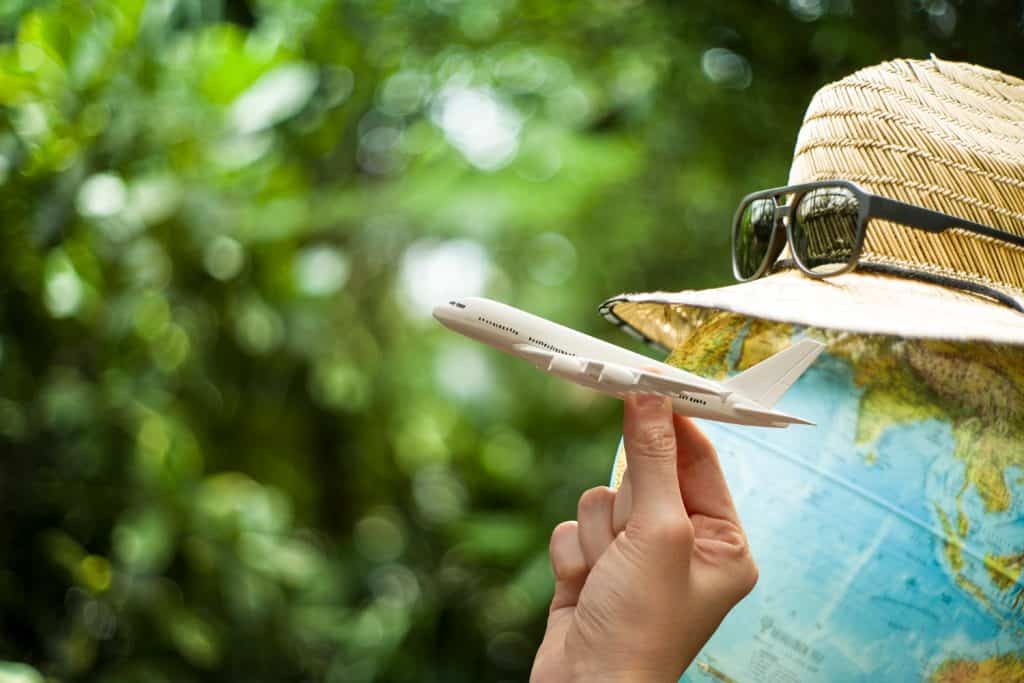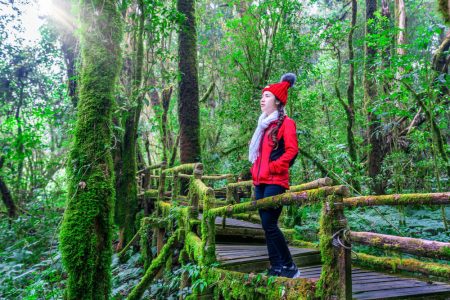
In This Article
We are destroying our planet, and we are doing it incredibly fast. Thanks to the never-ending expansion of world population, the demand for more products and services as well as the continuous growth of many industries,
As one of the world´s largest industries, tourism is associated with many most negatively affect the environment, particularly in touristic locations. Tourism is great, but if it comes at the cost of the destruction of our planet, then things need to change. People can´t just stop traveling completely, but we can actively decide to do it in less invasive ways, mitigating our impact in the environment.
There is a need to develop new practices and principles that limit the negative effect that people have on the environment. This where ecotourism comes into the picture.
Ecotourism – A new way to explore the world
Ecotourism is a form of tourism that prioritizes environmental sustainability and responsible travel practices that involves experiencing natural environments and ecosystems while also promoting their conservation. It aims to limit the negative impact that normal tourism has on ecosystems while maximizing the benefits for the local communities that live and work in those regions.
According to some scholars, ecotourism needs to address the following factors:
- Be able to be implemented in small scale, such as low-density groups of travelers.
- Encourage people to preserve local biodiversity and habitats, specially through activities with local communities that generate awareness on the importance of environment preservation.
- Contribute economically to preserve, maintain and enhance the habitats that tourist visit.
- Respect the values, beliefs and livelihoods of local communities while promoting their culture to ensure folklore maintenance.
- Stimulate the incorporation of energy efficient practices, as well as renewable energy in the daily activities of local communities.
- Improve the quality of life of communities and bring economic growth to the region.
- Be moderately commercialized.

Developing ecotourism is not a simple task. Strategy segmentation is essential to identify opportunities and develop the necessary infrastructure and attract enough attention for it to be economically viable. It requires a deep commitment between local communities, governments and businesses in order to understand the needs and context of individual communities that will allow them to achieve sustainable development in tourism. Therefore, the strategies and practices that are implemented in a community might not work the same in another region.
Ecotourism is all about respecting the local culture and the environment while creating meaningful and purposeful interactions between tourists . It can include activities like hiking, camping, bird watching, and kayaking. This type of tourism is gaining popularity due to its focus on the environment, progressive guiding principles, and largely positive press.
Why is Ecotourism Important
Ecotourism has become a vital tool to promote environment conservation, sustainable development of communities and responsible travel practices. When implementing its principles correctly, it provides a sustainable and responsible way for people to experience the beauty of the natural world. Furthermore, it brings income opportunities to local communities living in these areas.
And it has indeed bring a lot of opportunities worldwide. Ecotourism is one of the fastest growing segments of the tourism industry. According to the Ecotourism Global Market Report 2023, the industry grew up to 189.8 billion USD in 2022 and is expected to grow to 331 billion USD by 2027. This encourages other companies and organizations to change their practices in order to contribute to the protection of the environment long-term.
How to explore the natural world responsibly?
There are ways to explore the world responsibly. If you are inspired to experience the beauty of our planet, here are some actionable advice to plan:
- Research your location: Choose eco-friendly accommodations that prioritize sustainability and environmental protection. For example, you can visit national parks, wildlife sanctuaries, or eco-lodges known for their commitment to the protection and conservation of their surroundings. You can also find hotels and other touristic locations that have implemented more eco-friendly practices and have some degree of certification. GreenKey, for example, is an international sustainability certification program operated by the world’s largest environmental organization, the Foundation for Environmental Education (FEE). More than 4400 hotels in more than 60 countries have already been certified, so there´s plenty of options available worldwide.
- Support Local Communities: Plan your vacation so that you can visit local attractions, buy locally made products and eat at local restaurants. Take this opportunity to immerse yourself in the place that you are visiting to get the most authentic experience that you can. Next time you go traveling, avoid the convenience of international brands.
- Participate in Conservation Activities: Many eco-tourism destinations offer opportunities to actively engage in conservation efforts, such as wildlife viewing and monitoring, tree planting, as well as conservation expeditions or guided tours that bring awareness to the issues of a particular region. These experiences allow you to contribute directly to the protection of the environment.
- Respect the Local Culture: By following the local customs and minimizing your impact on the environment, you can encourage their protection.
- Avoid Polluting: Finding alternatives to single-use plastics, as well as disposable and other sorts of waste you can help local communities to maintain their local habitats and ensure their conservation.
Ecotourism is more than a trend. It is a way to provide people responsible and sustainable access to the natural world without compromising its existence in the long term. If we implement its principles and improve the quality of life of local communities while protecting the environment, we will be able to do a lot of good for the world.



